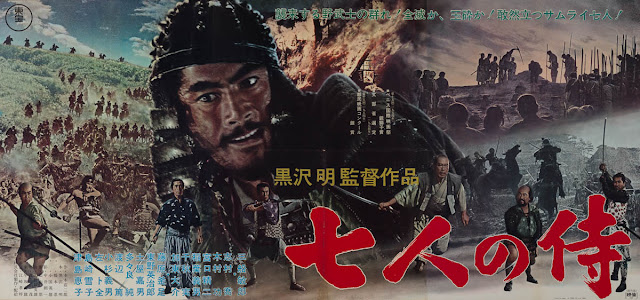Birds of Prey (and the Fantabulous Emancipation of One Harley Quinn) (Dir Cathie Yan, 1h 50m)
Since her creation for Batman: The Animated Series, first appearing in September 1992, the character of Harley Quinn has been, through practically every medium, from comics to cartoons to the walking disaster that was Suicide Squad, inevitably connected to the figure of the Joker; their relationship, for all its Hot Topic-isation, is that of abuser and victim. What Birds of Prey does, simply, is to set Harley free, in a film that explores the aftermath of the breakup of that toxic relationship, and indeed female survival and healing from abusive relationships, in a film that otherwise celebrates female power, from its inclusive cast to its exclusively female soundtrack, to its very tone and visual sensibility.
With Margot Robbie's Harley Quinn finally having had enough of, and subsequently breaking up with the Joker, and thus losing the protection he has given her over the years, so Quinn finds herself the target for criminal mastermind Roman Sionis (Ewan McGregor), and his empire, with her fate caught up in that of Cassandra Cain (Ella Jay Basco), a young pickpocket who has stolen something of Roman's, as both of them race against time to outsmart Roman and, with the help of a trio of tough of resourceful women, to help Harley manage to escape her past, and become a better-well, a happier-person.
What this film does share in common with its precessor is Margot Robbie, and, much as Ryan Reynolds is now, almost indellibly Deadpool, so Robbie feels like the quintessential Harley Quinn-there is a chaotic energy, an unpredictability, even in quiet sequences where she begins to get over the unseen Mr J, about her. But where Suicide Squad put her as a mere pawn of the Joker, delved into the bessoted and obsessed "meet crazy" relationship between the two, and its abusive connotations, and connected that chaotic spirit to a questionable and decidedly male orientated sensibility, Bird of Prey, with second-time director Cathie Yan and a script by Christina Hodson, previously behind the return to form of Transformers in Bumblebee, has altogther different ideas.
Nowhere is this seen better than in Harley's costume-gone is the costume of Suicide Squad, the Hot Topic-isation of the character's appearance in hot pants and tight t-shirt, a character designed by male audiences for male audiences, a mixture of sleasy and overly sexual. This version of Harley, however, is unmistakably a female-written Harley for, if not a female audience, not a purely male one-several scenes, for example, see her in pyjamas, or a onesie whilst recovering from her relationship with the Joker, whilst her appearance in general is almost a deliberate 180 fron her original appearance, the Joker-themed items in her item, including the necklace and t-shirt thate essentially mark her out as subservient to him gone, replaced with the self-affirming appearance of her own name on her clothing.
This self affirming sense carries out through the film in general; of its five heroines, only the uptight Huntress, bent on her own plan of revenge against the men who killed her family (Mary Elizabeth Winstead) is not directly a victim of men either abusing them or using them as a tool, from Harley herself and Cassandra, to the essentially captive Black Canary (Jurnee Smollett-Bell) and the overlooked detective, Renee Montoya (Rosie Perez), who has been overlooked whiilst other characters take credit for her work-the quintet, in short, are all women wronged by men, who band together to get even.
There is also, undoubtedly a feminist perspective to the film-all five of our heroines are well-wrought and complex figures, and each of them is well developed and has their own narrative arc. The fact that the majority of the villains, even in the very minor cases, are male, from Ewan McGregor's Roman, a sadistic predatory figure, dowarwards. Nowhere is this seen bettern than in the fight scenes, particularly towards the end of the film where they team together, in impressively visceral fights, with the number of kicks, punches and the like to the crotch almost wince-inducing.
But, perhaps the biggest sense in this film, alongside its strong female empowerment, and in particular the empowerment and escape from the influence of the Joker, is the sense of fun that this film has, from its technicolour and almost dayglo colour palet, from a scene in which Harley shoots up the police station with a paintball gun in certain of Cassandra, not to mention the general appearance of Harley's inner monologue via on screen text and other neat visual tricks in perhaps its only other influence from Suicide Squad. It is fun to see this version of Harley, as well as the other members of the Birds of Prey storm through the film, fun, and indeed cathartic to see this version of Harley recover, and stand on her own two feet, and fun to simply spend time in the presence of this character and her slightly skewed world view.
Birds Of Prey is many things. It is a excellent solo outing for Robbie as Harley Quinn, it is a spectacular addition to the DC Cinematic Universe, and brings several of their most beloved female characters to the big screen at last, whilst being a visual delight. But perhaps, it's simply all of them- a breath of dayglo bright feminist coded snapcrack-fast humour. which, compared even to the previous film of the DC canon, which gave Harley's one-time flame a long awaited solo outing, is a breath of cinematic fresh air.
Rating: Highly Recommended



Comments
Post a Comment